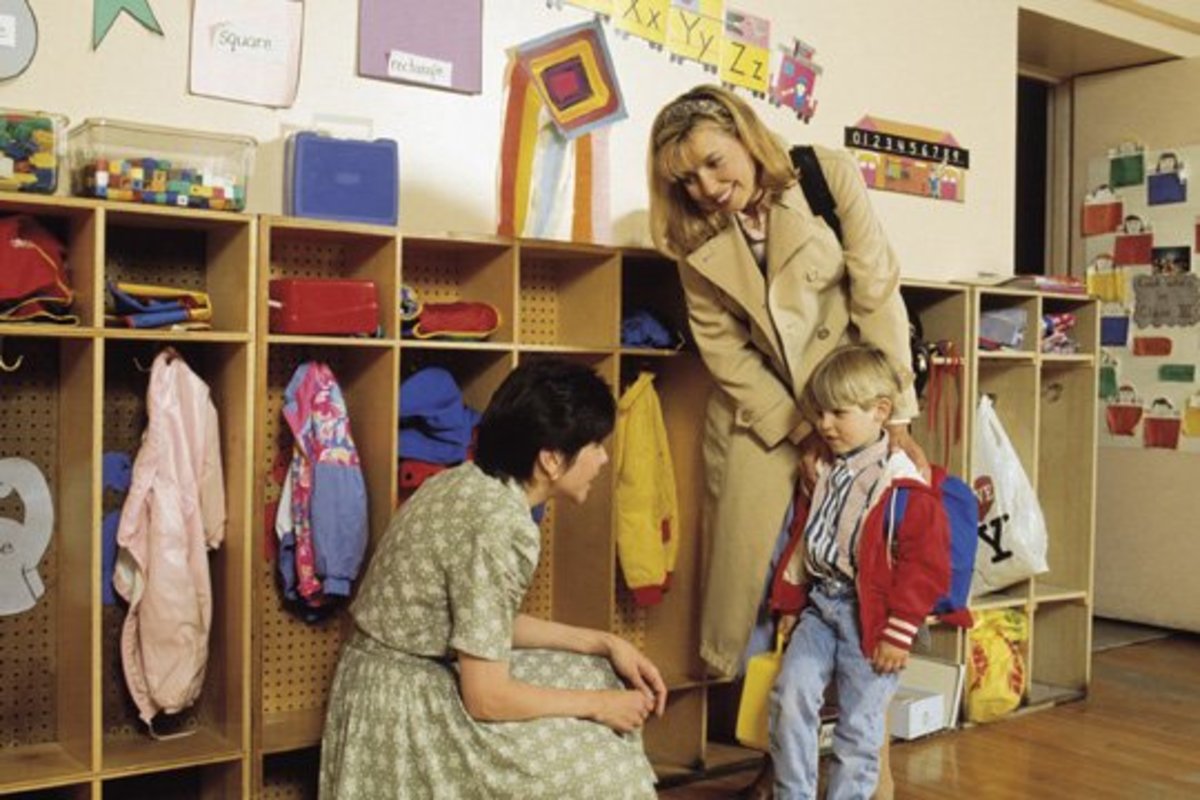Telling Your Child NO and MEANING It.
Setting Boundaries and Consequences Ahead of Time
When a child is old enough to communicate, they are old enough to begin to understand boundaries.
My niece was not even a year old when she began to push her meal off the high chair in front of her. She would do it and laugh, and her mother would then rush over with a plate of fresh food. The baby learned quickly that this was a fun game.
When I babysat for her, I would only place a small amount of food in front of her on a plate. When she would begin to push it, I would hold her hand firmly and say "Don't push the plate to the floor." She stopped doing it to me over time.
With older children, it is much easier. "Don't come home after a certain time. You will be punished if you do." Letting a child know that there are repercussions for their actions allows them to make the decision of whether or not to disobey.
An even clearer statement is "Don't come home after a certain time. If you do, you will lose x privilege for x amount of time." Punishment should not be a surprise. The child should know that if you violate the rules, there will be a price to pay for them.
When I was a young pre-teen girl, I had a friend who very much wanted to climb out her bedroom window and go walk around the small town that we lived in. Many nights that I spent the night, I was awakened by her, telling me to "pull on your clothes, let's go for a walk in the neighborhood." I always feigned sleep because I knew that if we got into trouble, we would be punished by our parents, and it was not something that I wanted to go through. Because I had parents who set boundaries, my ideas of what would happen were clear.
Dealing With New Situations
There are situations that your child will come up with that you have not talked about before. Here's a clue:
Don't go take photos of the kids having torn up the house, post it to your social networks and THEN tell the kid that what they did was wrong. Step one is telling the child what they did was wrong, and then disciplining them. Take photos if you must when they are not in the room. If they marked all over one another, then take a picture if you must, but no smiles, and no humor on your part about it.
Other situations may require some quick thinking on your part. A friend of mine had a child who was exceptionally bratty at an amusement park during a family vacation. This child made the whole trip so miserable because of something that was done. How bad was the kid? The rest of the family went to the parks while the bad child was sent to a daycare center for the week. Yep. A pre-teen in a daycare. The punishment was effective, and the child has never really caused as much havoc since. Be prepared to deal with new situations that punish the child that is responsible, not all of the children.
Children will come up with all sorts of reasons to justify their bad behavior. A key rule here is to stick to the topic at hand. When my son was grounded, he resorted to the tactic of "My friends' parents let them do it". I maintained my calm and stuck to the topic. I simply said "I am not his parent, he is not my child. We are talking about you." He knew that his point was invalid. Being a parent means sticking to the point and not being distracted.
Punishment Should Be Fair, Just, and Always Carried Out
My step-father was the king of the empty threats. My siblings and I learned that we could get away with quite a lot before he would actually punish us. Not good.
If something is important enough to you to threaten a punishment, then carry out the punishment. I see parents in stores calling out their child's name, saying "We're leaving without you."
Want to know how the child sees this? As a game. Not as a punishment. If you want your child to do something, make them do it. If you want your child to come to you, ask them once, then go and get them. Parenting takes effort, hard work, and determination.
No matter what, if you tell your child that if they do something wrong or do not do something that they are told to do, they will be punished, then you as the parent or guardian need to punish them. No one likes to punish a child, but a child without any sense of boundaries is dangerous.
Talking to You Child During the Punishment Phase
With older children it is easier. "I instructed you, and you failed. This is the consequence."
No amount of yelling, cajoling, begging, or pleading should work from your child. They chose to break the rules. Explain what the punishment is and why. Arguing and back talk, any other signs of disrespect from your child should add to the punishment.
Respect is important to be maintained. Allowing a child to be critical of you when they are the ones that broke the rules is not respecting the fact that you are the parent in this parent/child relationship.
After Punishment Is Over
Let the child know that the punishment is over. Explain what will happen if they choose to repeat the action or behavior. I always explain that punishment is in place because I care enough for the child to want them to have the best life that they possibly can, and if they are disregarding rules, it places a roadblock between us where trust is lost. I explain that I love them, but we have to rebuild the trust by them knowing that my word is something that can be relied on, even for unpleasant times. I don't fall back on "this is going to hurt me more than it hurts you" because it rings false and is manipulative and passive aggressive. My pain is not the child's concern.
If you have difficulty parenting, there are loads of books and groups that you can read or become a member of. Parenting is a very hard job, but you are up to the task!
About me
Please, if you like my hubs, vote them up, comment, or anything else positive. I cherish all of my reader comments and look forward to hearing from you.
This content reflects the personal opinions of the author. It is accurate and true to the best of the author’s knowledge and should not be substituted for impartial fact or advice in legal, political, or personal matters.
© 2012 Dixie








